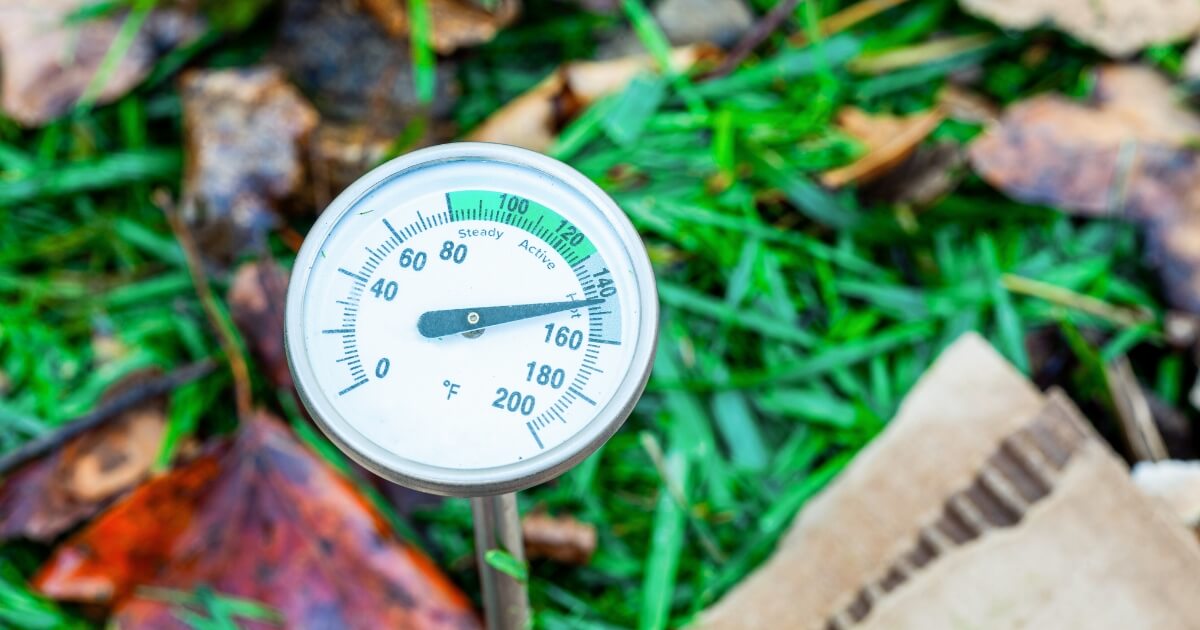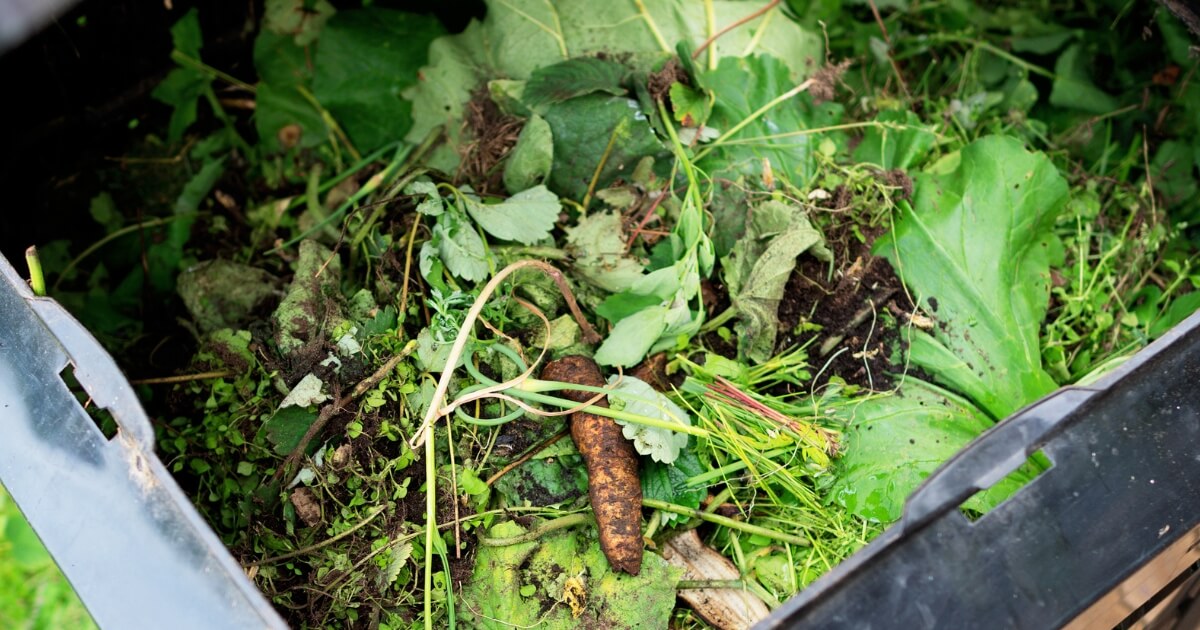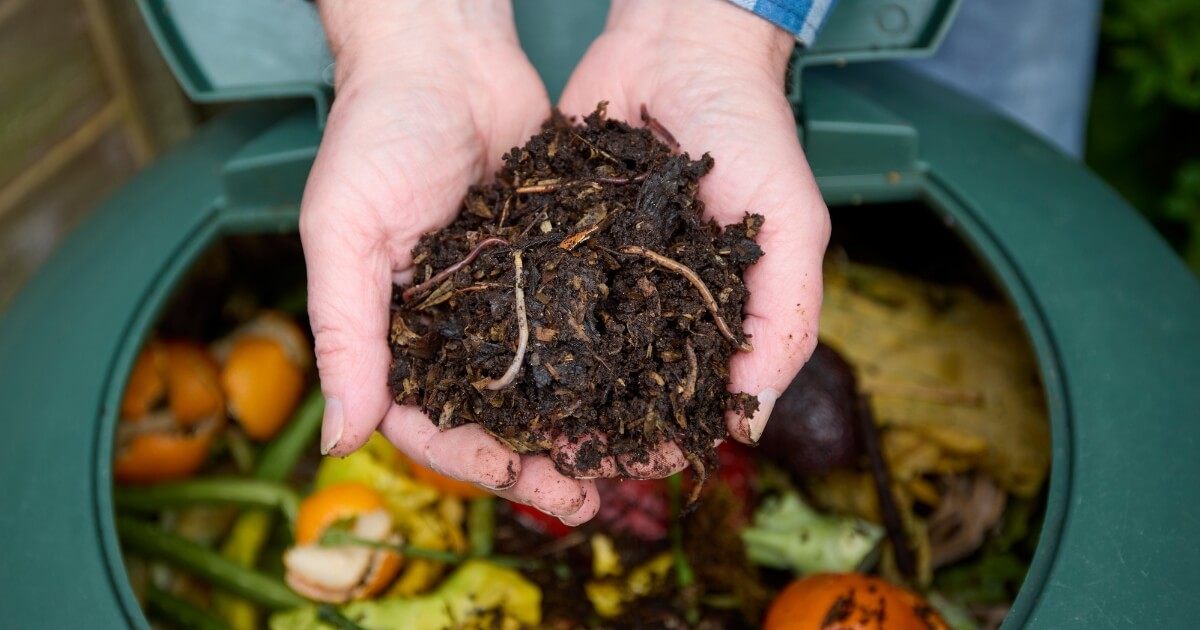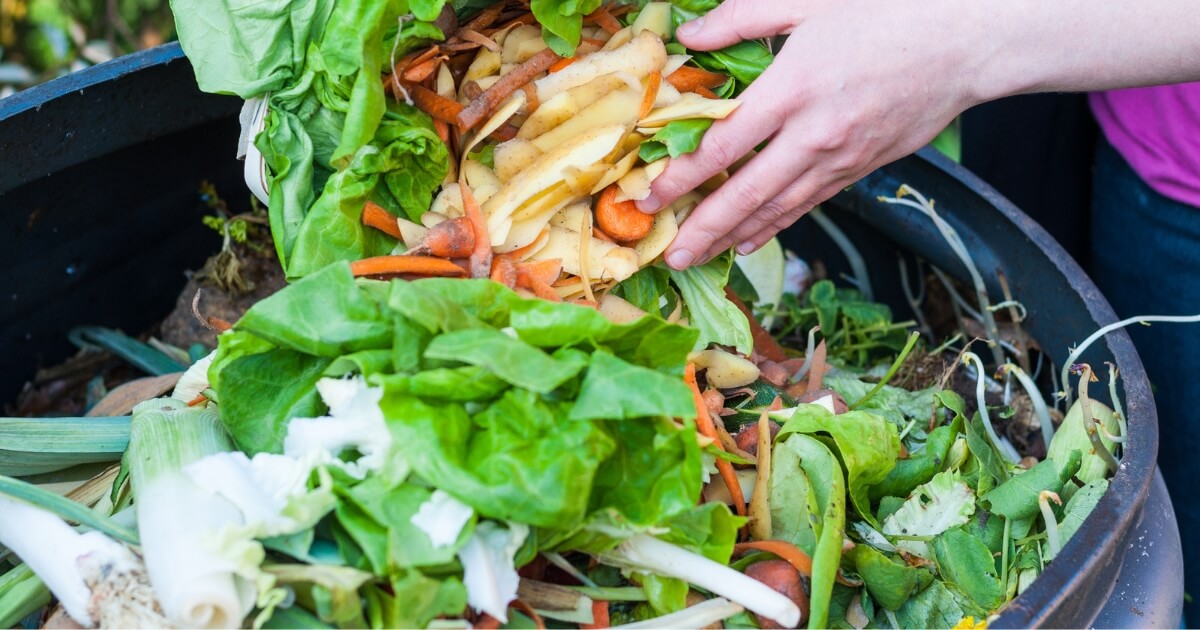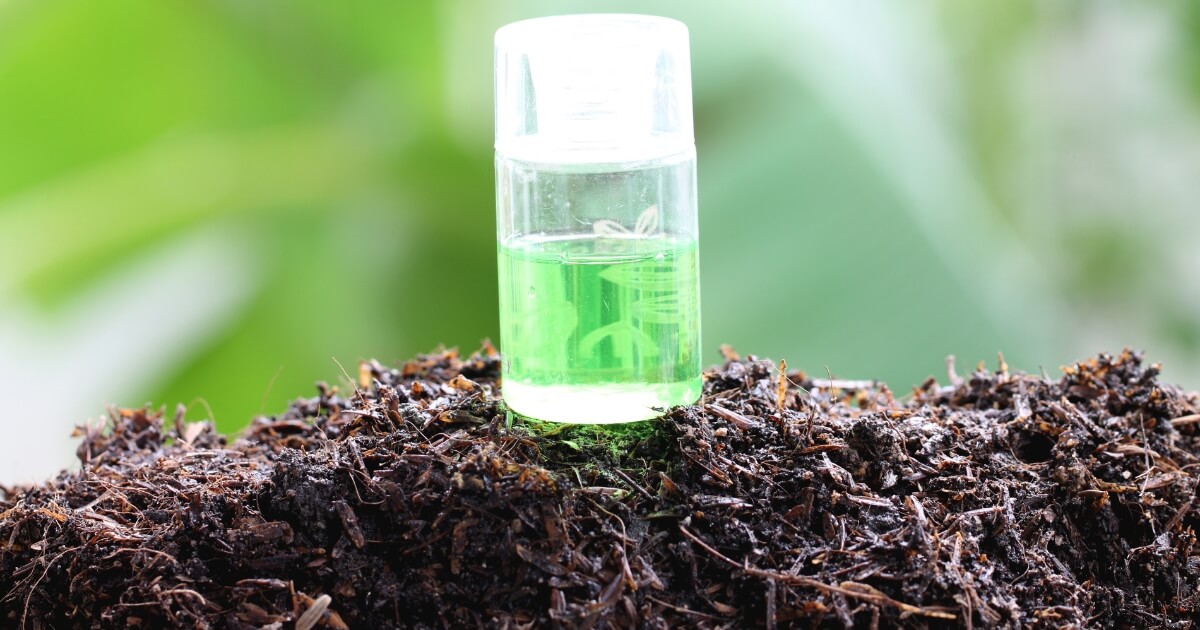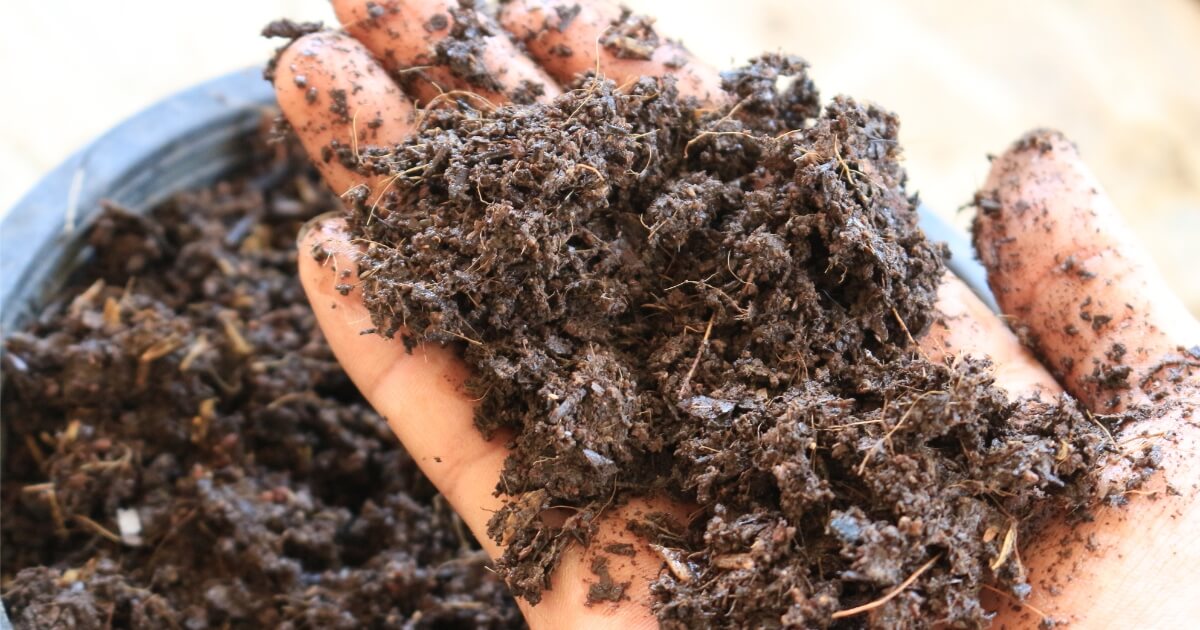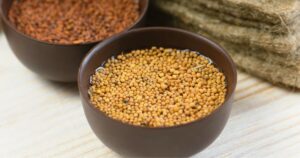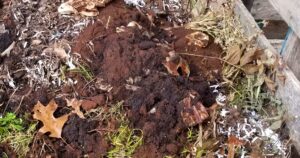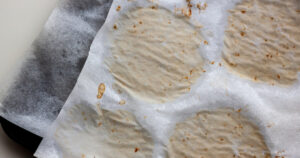Should you worry if you see maggots in your compost?
As gross as they are, maggots can be beneficial to a composting system, but not always.
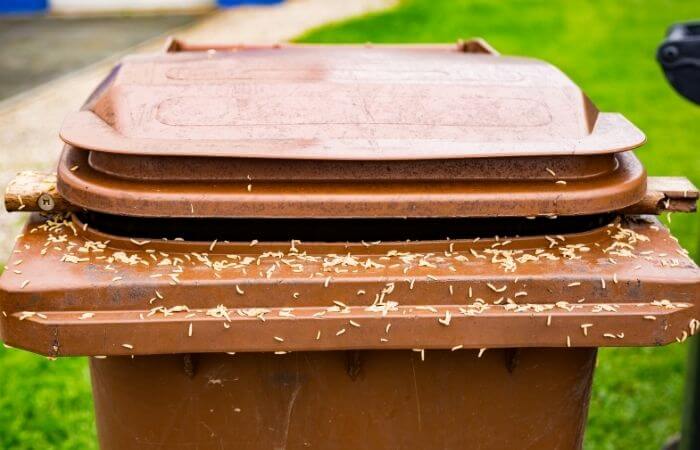
To explain how maggots get into your compost and whether they are good or bad, I put together this helpful article to answer those common questions.
I also give you a step-by-step guide on how to get rid of maggots in compost so that you can avoid these wiggling little creatures in the first place!
Why Are Maggots In My Compost?
To understand why maggots are in your compost, you need to know what they are.
Maggots are almost always the larvae of Black Soldier flies. They appear as long, thin worms with a creamy-gray color.
So, why are the maggots in your compost?
The Black Soldier Fly females search for material rich in nitrogen in which to lay their eggs, so the larvae have plenty of food to sustain life after hatching.
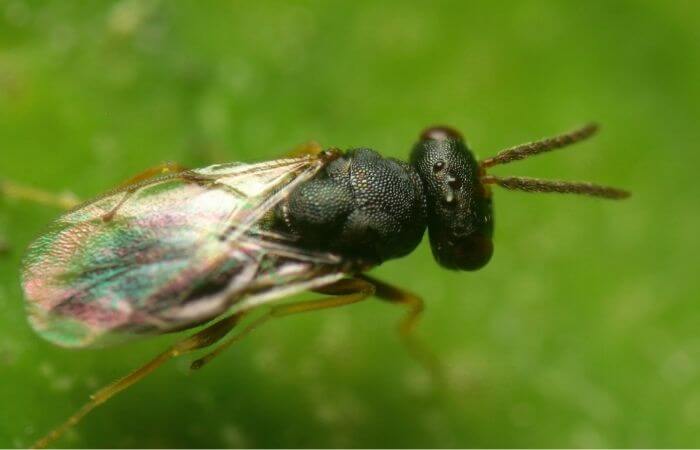
A compost bin full of rotting vegetation is an ideal maggot nursery, so the flies find them very appealing.
The adult flies do not bite, nor do they carry any disease, which is comforting to know. Once the Black Soldier fly lays its eggs (up to 500!), it takes anywhere from 4-21 days for them to hatch. Moisture conditions in the surrounding material either promote or delay hatching.
Are Maggots In Your Compost Good Or Bad?
Now that you know why maggots are in your compost, let’s look at whether having them there is a good or bad thing.
The Good:
- Maggots are voracious eaters, breaking down even large amounts of food scraps in only hours, so your compost finishes faster
- The larvae are rich in calcium, which ups the nutrients in the compost
- Maggots can process compost “no-no’s” such as meat, cheese, or greasy food items, which reduces kitchen waste even more
- The egg-laying flies carry beneficial bacteria to the compost, which helps decomposition
- Maggots eat food so fast, and it reduces overall compost bin odor
- Maggots can provide a free, high-protein meal to chickens – just let them loose near an infested outdoor pile
- Maggots are harmless, even if they give people the heebie-jeebies
The Bad:
- Squirming maggots can be too much to handle for those with weak stomachs
- The larvae can take over a compost bin and may interfere with the proper function
- Compost made in bins with lots of maggot action tends to have a less pleasant smell
As you can see, maggots bring many more benefits to compost than most people think. But, for those who don’t like the idea of maggots in a bin close to their home or just prefer to avoid them entirely, next up are the best ways to get rid of maggots in compost.
How To Get Rid Of Maggots In Compost
Here are the tried-and-true methods to stopping maggot infestations in your compost:
Step 1 – Prevent Egg Deposit
The first step to keep maggots out of your home compost is to stop the flies from reaching the material and laying eggs.
To accomplish this, you will need these supplies:
- Fine mesh screening
- Waterproof tape
- Waterproof caulk
- Rubbing alcholol
- Rubber gloves and rag
For compost bins that tumble, put on your gloves and cut sections of the screen that will cover every hole large enough for a small fly to enter. Soak a rag in rubbing alcohol, and from the outside, clean off the areas around each hole and let dry. This step allows the caulk and tape to adhere.
Using caulk, make a circle around each hole. Lay the screen section on top, pushing down enough for the caulk to squish through and hold it in place. Tape down the loose edges to further secure the screening and keep it in place until the caulk dries.
For stationary compost containers that only have one opening, make a solid cover using wood and screening or drape the screen over the top and use a bungee to hold it in place.
Outdoor compost piles will need to have a solid top and walls built from wood framing with a screen cover. Outdoor compost piles are the hardest to keep flies out of, so you may opt to follow one of these next steps that require no building.
Step 2 – Add More Brown Material
To deter flies from laying eggs in compost, you need to keep brown material at enough depth to form a barrier from the more moist nitrogen-rich content that attracts the females.
Too much moisture in your compost, in general, will entice flies to come lay eggs, so always keep the ratio of browns to greens correct and check daily with a moisture meter.
Once you turn your compost, add a buffer of three or four inches of dry leaves, shredded cardboard, or dry grass on top to seal off the pile, so egg-laden flies aren’t interested.
Step 3 – Turn Compost More Often
Failing to turn your compost consistently will lead to moisture pockets that encourage flies to lay eggs. Once the eggs hatch and start feeding, they will gravitate toward wetter sections in the compost.
Frequent turning of a tumbler or with a garden fork helps keep the compost material equally moist, as drier ingredients soak up moisture from wetter ones. If the overall moisture level is still too high, increase browns and watch the maggot activity decrease.
Step 4 – Add Lime
Adding lime into your compost deters maggots. Mix a cup of lime into your compost for every 25 cubic feet of material.
An occasional dose of lime into your compost is fine, but constant treatment can cause the completed compost to have a higher pH level than average. Depending on which plants you plan to spread the compost around, this may pose an issue.
Pine needles are another option to add to your compost instead of lime, as flies tend to avoid them for laying eggs due to their high acid content.
Step 5 – Bury Food
Always bury your fresh food scraps at least six inches down into your compost. Doing so allows the other drier and more processed material to cover and protect the new scraps from attracting flies.
When maggots don’t have a ready food source, they will die, and add calcium and other nutrients to your compost.
In Summary
Maggots in compost are a natural and common occurrence that is nothing to worry about when it comes to your composting system’s health.
I hope you use the tips in this guide to either encourage or prevent maggots in compost. What you decide is a personal preference, but either way, helping the environment by composting your kitchen and yard waste is a beautiful thing!
